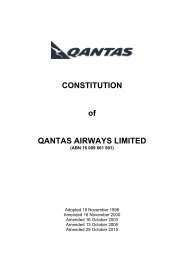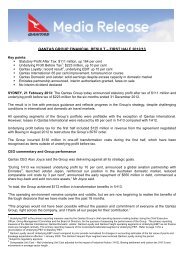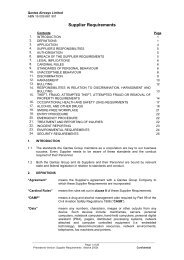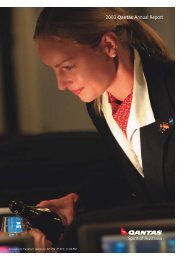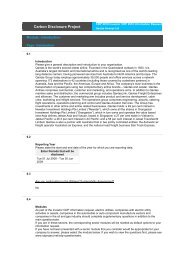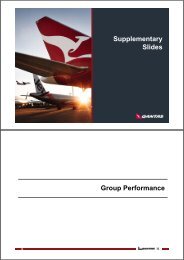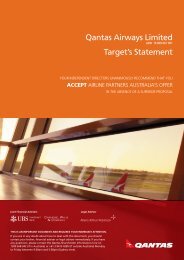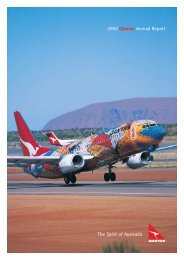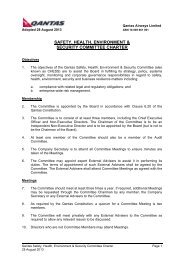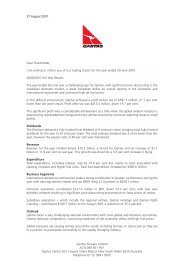radio - Qantas
radio - Qantas
radio - Qantas
Create successful ePaper yourself
Turn your PDF publications into a flip-book with our unique Google optimized e-Paper software.
Talking Business with ITA BUTTROSE<br />
30<br />
Michael<br />
Padden<br />
used many, many times since I’ve been doing this job is<br />
from a football coach called John Kennedy who managed<br />
the Hawthorne football team in the 70s. He gave a famous<br />
speech at three-quarter time when he was losing in the<br />
Grand Final to his players and he said, don’t think, do, don’t<br />
think, do, just smother, tackle, move the ball forward and<br />
just get going, and that’s what we did when I came into<br />
the business was to just start doing things and to get the<br />
ball moving and to just take short sharp steps and just get<br />
moving forward and get change happening. We really had to<br />
practice change to do change and the only way to do that in<br />
my view was to actually practice it and make things happen.<br />
Then if you make a little mistake or you’re not sure if that’s<br />
the right direction, you can change rapidly, but it was about<br />
changing the culture to making short, sharp, fast changes<br />
to get to where you want to go, which is really important,<br />
especially in a digital world where we don’t know where the<br />
answer is. It’s really hard to kind of plot a strategy that says,<br />
hey in two years time, or in three years time you want to do<br />
this, because you don’t know what two or three years time<br />
looks like, so the culture of the business really has to be<br />
set up so we can learn, adapt, respond to our customers,<br />
respond to some of the structural forces in the market as<br />
well, and be nimble and dynamic.<br />
IB This is Ita Butrose. I’m talking with Michael Padden,<br />
the head of Classifieds at Telstra. With your advertising<br />
to customers, you’ve used humour, the frog and goat<br />
campaign comes to mind. Do you think there is more<br />
humour in advertising or that the internet or digital<br />
companies are able to use humour more effectively?<br />
MP Interesting question. The reason we chose humour as<br />
a way to get our message across was we had a very simple<br />
job, so after we’d closed the newspaper down we wanted to<br />
do a couple of things. We wanted to remind Australians that<br />
Trading Post was still around and that when the newspaper<br />
closed it was the end of Trading Post, but that Trading Post<br />
was now internet and on your mobile. There was lots of<br />
things that we could have said about Trading Post in those<br />
ads; like it was Australian and it had a history, it sold cars,<br />
<strong>radio</strong><br />
QANTAS INFLIGHT ENTERTAINMENT | JUNE 2010



